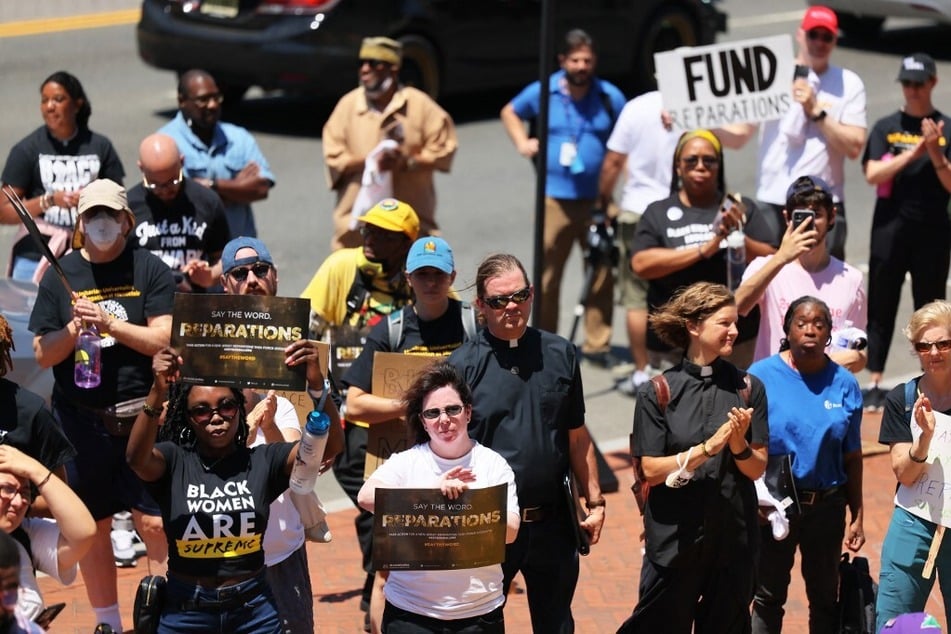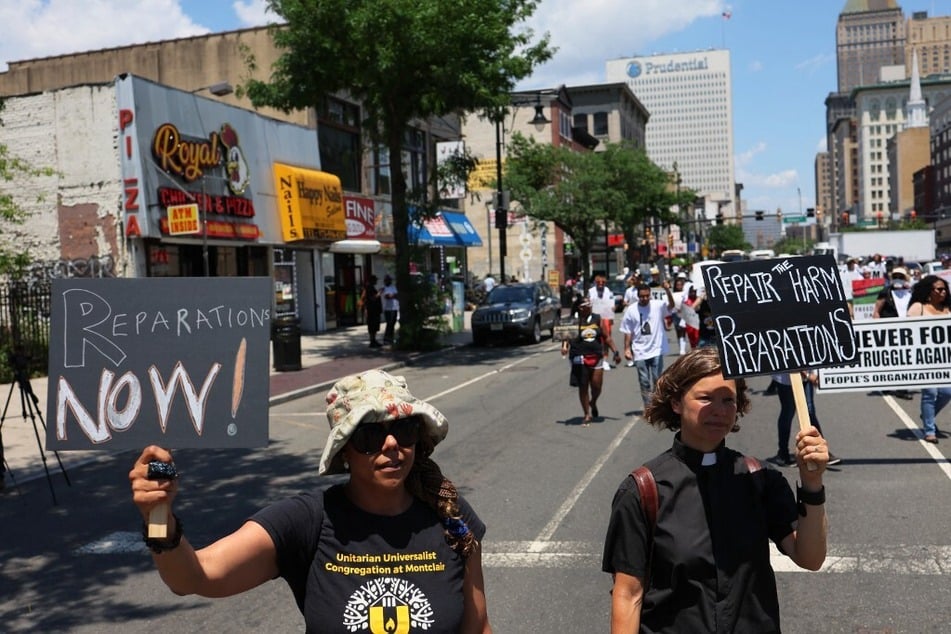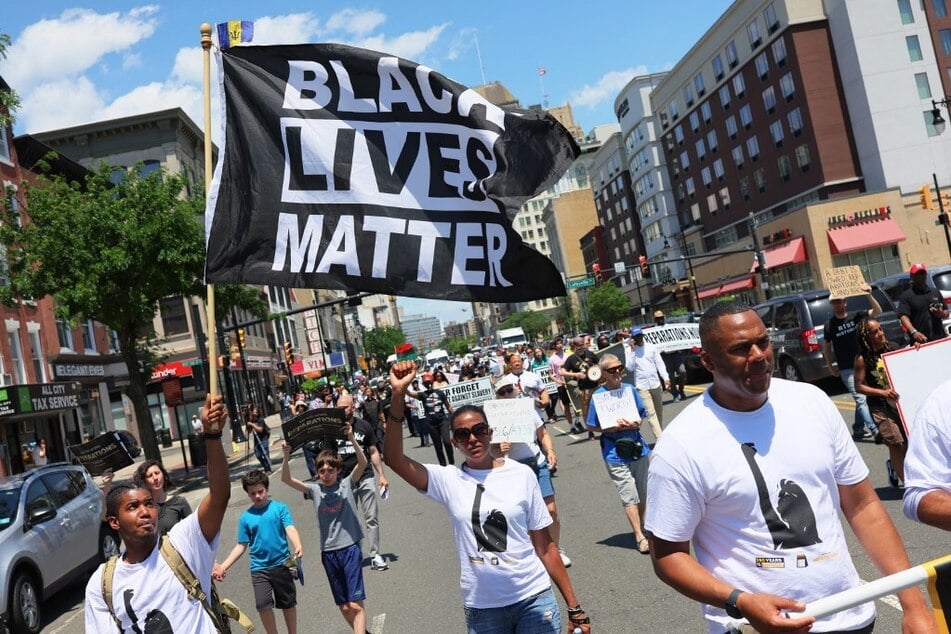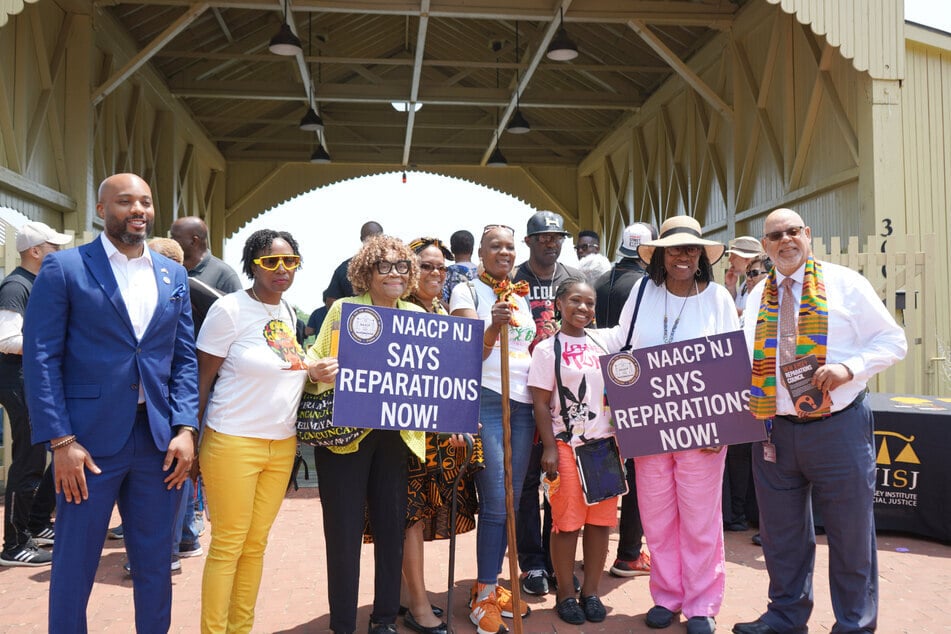New Jersey Reparations Council centers faith and Black resistance in powerful public session
Newark, New Jersey - The New Jersey Reparations Council (NJRC) third virtual public session explored the role of faith and Black resistance as advocates seek to chart a path toward true equality in the Garden State.

The NJRC, convened by the New Jersey Institute for Social Justice and launched on Juneteenth 2023, held its third of nine public sessions on Thursday. The conversation focused on the role of religious institutions and leaders in the trafficking and oppression of African people and their descendants.
The council's first session laid the groundwork for the discussion by outlining New Jersey's legacy of enslavement, from its inception as a European colony in the 17th century to its ratification of the 13th Amendment. The second session examined past and present segregation in New Jersey, particularly in housing and education.
The Faith and Black Resistance Committee made the case that the direct enslavement of Black people and collecting of resources generated through slave labor have enriched many white churches, leaving their Black counterparts in relative poverty. This is particularly true in New Jersey, which is home to some of the oldest faith institutions in the nation.
"The wealth of these churches, which they still benefit from today – these denominations, these beautiful cathedrals, and these endowments which are in place which keep many of them alive – is inextricably intertwined with the slave trade," said Rev. Charles Boyer, committee co-chair and pastor at Greater Mount Zion AME in Trenton.
"At the same time as these institutions both benefitted and contributed to the slave trade and adopted all kinds of theologies to justify it, there was also in the spirit of Black resistance, the historical role that Black faith and Black religion played in pushing back."
Early foundations of white church wealth

Christian institutions' profiting off the exploitation of Black people dates back to prior to the establishment of the United States.
Dr. Stephanie James Harris, director of Africana Studies at Seton Hall University, outlined the history of tithable laws, which began in Virginia in 1623 and then spread throughout the rest of the 13 colonies, including New Jersey.
Under these laws, all people of African descent and Indigenous people over 16 years of age, both male and female, were to be placed on tithable lists, generally held in churches. The tithes – typically paid in the form of farmed crops – were ultimately divided among the government, counties, and parish churches.
The early tax system required slaveholders to pay tithes for enslaved people or free Black husbands to pay for their wives, placing severe restrictions on Black people's marriage options. Free, unmarried Black women had to pay tithes to stay out of debt and maintain their own freedom.
"Associating this tithable work with African-American women was unique and actually set the discourse for the stratification for African-American females outside of their femininity and their equal womanhood with English women," Harris explained.
"Those who were 'masters' of enslaved African women paid the tithes for these women, but it also meant that they worked them even harder to be able to garner enough money and agricultural access to be able to pay those tithes."
"It made [the women] beasts of labor, as they were seen in the colonial Americas."
Faith and resistance

From the earliest days of the slave trade, faith traditions provided enslaved people an anchor and the tools to fight back against their oppressors.
"It is estimated that approximately 30% of the Africans brought to the Americas came from either Muslim societies, Muslim families, or communities that were related to Al-Islam. That is a very significant number because they came here with a faith. They came here with a certain kind of orientation to life," said Imam Wahy-ud Deen Shareef of Masjid Waarit ud Deen in Newark.
While many people in African societies were familiar with some concept of enslavement, American chattel slavery, which held Black people in bondage for life, was an entirely new experience for trafficked Muslims.
"They understood that there was no connection to slavery with respect to race or color, and there was no such thing as being in servitude to another human being for the rest of your life because in Islam, we're not servants of people. We're servants of Almighty God," Imam Shareef explained.
For this reason, many of the uprisings that took place in the Americas were led by enslaved Muslims, he noted.
Powerful resistance movements also arose out of Black Christian churches, many of which emerged to support the Underground Railroad and to provide spaces for education and mutual aid.
"No matter what country Africans were taken from, they all asserted sovereignty over their own bodies. They knew that they were human regardless of what capitalism did by creating another race," said Rev. Dr. Carol Lynn Patterson, chief evangelism officer at Setting the Captives Free Ministries.
Healing and repair

The present-day reparations movement seeks to carry on that legacy of resistance – with faith institutions playing a key role in those efforts.
The NJRC's final report, scheduled for release on Juneteenth 2025, will outline the ongoing harms to Black New Jerseyans. It will also chart path toward a more equal New Jersey with a slate of policy proposals designed to reverse those wrongs.
As they embark upon that task, the Faith and Black Resistance Committee emphasized the moral imperative of pursuing reparations.
"When we call for justice, we can't say simply that we want to halt harm, but we have to work to heal the harm that has been caused," said Rev. Timothy Adkins-Jones, committee co-chair and senior pastor at Bethany Baptist Church in Newark. "That is at the heart of an actual call for justice."
Imam Shareef agreed: "It's time for this country to recognize that there is a debt that must be paid for robbing God and robbing other human beings of the rights that Almighty God has given them."
The NJRC's next session will take place on February 8 at 6:30 PM ET, led by the Health Equity Committee.
Cover photo: MICHAEL M. SANTIAGO / GETTY IMAGES NORTH AMERICA / GETTY IMAGES VIA AFP

